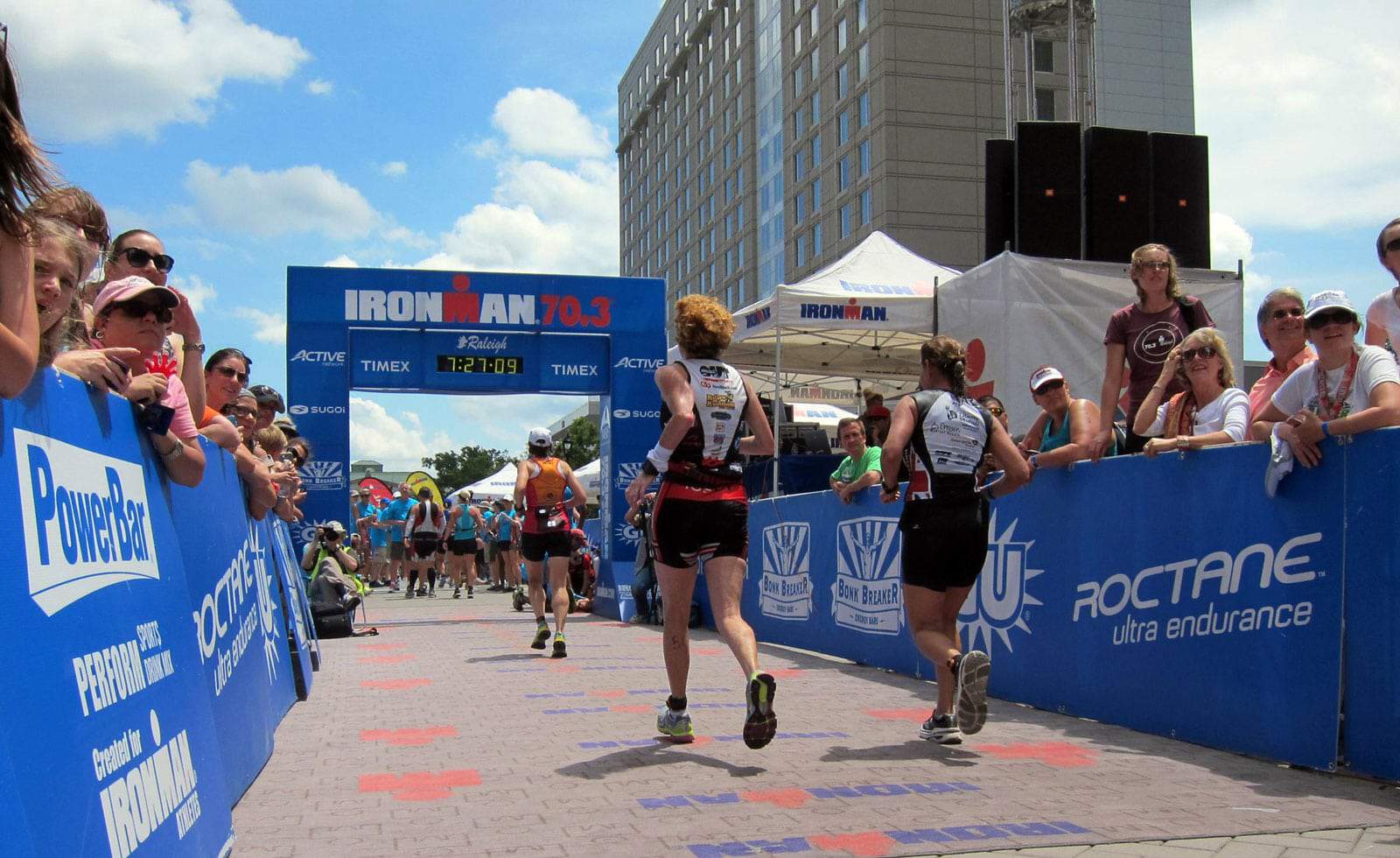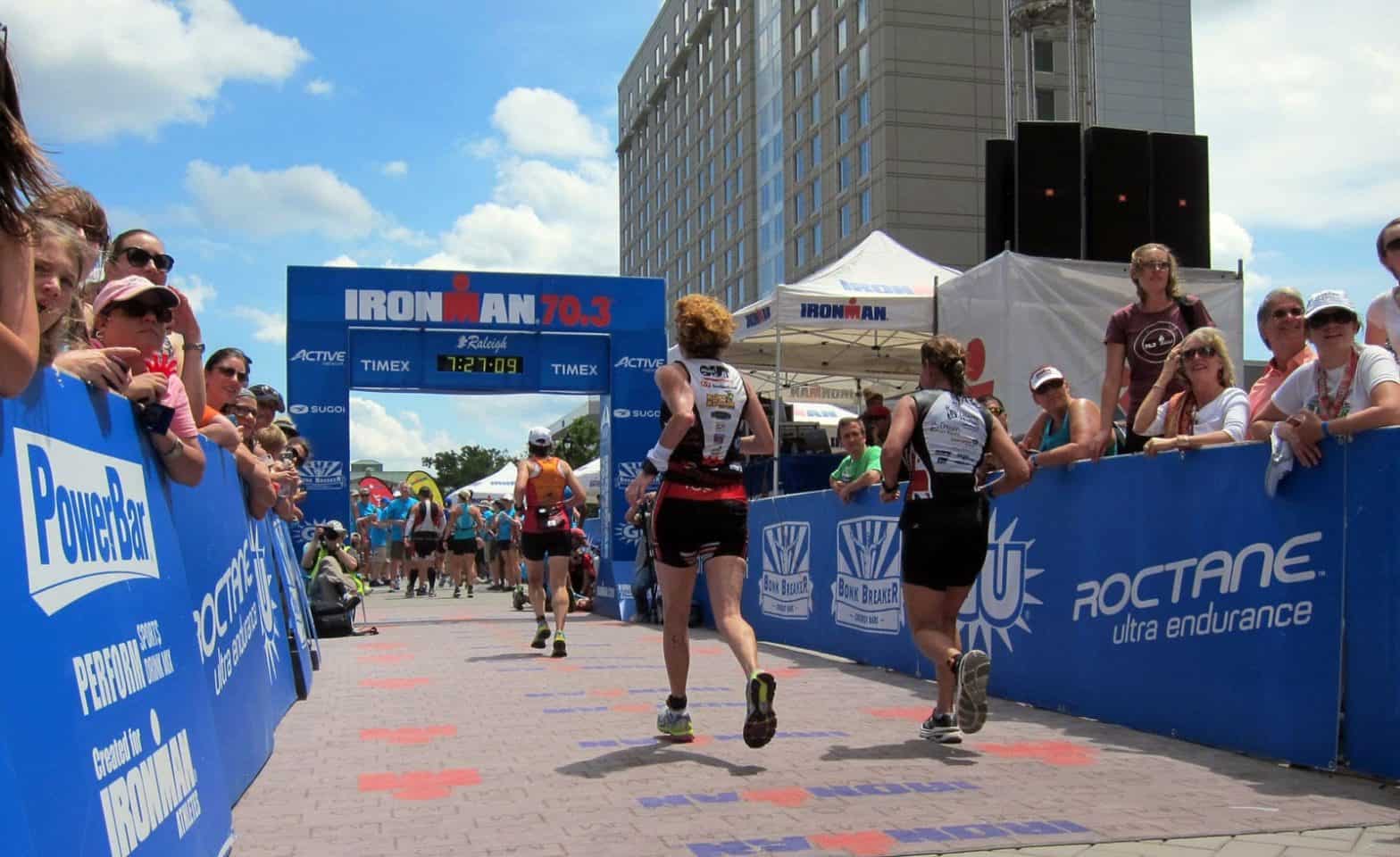Table of Contents
The physically strenuous side of an ironman competition is easy to appreciate. However, many athletes fail to realize the mental intensity of the sport and how powerful the psychological effects can be. Psychologically preparing for an ironman competition is imperative. Ironmen need to address their race day mindset, but they also must appreciate how psychologically important the period following a race is.
In this article, we will mention some symptoms of depression in ironman competitors after a grueling race, followed by tips on how to deal with this problem. If competitors sense they may be depressed after a competition, they should seek a medical or professional diagnosis.

*This post may contain affiliate links. As an Amazon Associate we earn from qualifying purchases.
Post-Race Depression in Ironman Competition Athletes
One notable psychological effect of ironman competitions is post-race depression. This “state of the blues” results from both the physical intensity of the race, plus the competitive nature inherent in athletics.
Like most athletes, ironmen want to be more than just competitive; they strive to be champions. Ironman competitions are individual athletic events that require a strong physical will and impeccable mental concentration.
When we do not perform up to expectations, we act unfavorably upon ourselves, sometimes bordering on an unhealthy self-defeating state of mind. Combining such total physical exhaustion with an inferior personal perception can lead to depression in ironmen.
Symptoms of Post-Race Blues
Dealing with our feelings after an ironman competition is important because untreated symptoms can lead to more serious problems. Many athletes who take on the ironman challenge end up quitting because they were not prepared for the intense psychological stress. Collectively, the phenomenon of unnatural post-race depression from ironman competitions is referred to as Post Ironman Depression Syndrome (PIDS).
If you experience any of these symptoms more than normal, seek advice from a specialist in sports psychology, or a mental health professional:
- Intense Sadness.
- Extreme Agitation.
- Unusual Levels of Boredom.
- Lack of Motivational.
- Excessive Anger or Annoyance.
Causes of PIDS
The Lone Wolf Complex
Post-race blues can be worse in individual sports because competitors must deal with all phases of their post-race recovery alone. Ironmen, triathletes, and marathoners all deal with this lone wolf complex. They often train alone, obviously race for themselves, and frequently recover alone. This can lead to a level of aloneness that causes depression.
Physical Walls
Ironmen experience something similar to the wall that marathoners experience during their 26-mile test of endurance. The Ironman wall comes in as a triple threat, starting with a 2½ mile swim, then over 100 miles on a bike, finishing with a marathon run.
Avoiding Post-Race Depression

Realizing that competing in an ironman competition can produce a state of psychological depression after the race is just half the battle. Here are some suggestions to help reduce the level of post-race blues after finishing one.
Race Day Mindset
Preparing the mind psychologically to guide the body through this gauntlet of physical trials is crucial. If an ironman loses his or her mental composure they could miss critical signals that lead to personal injury.
Race day mental preparation is imperative. A better mindset established beforehand will lead to more relaxed feelings immediately after we cross the finish line.
Training the Mind
Ironman competitions are fierce. Contestants need to appreciate both the physical as well as the mental requirements needed. Training the body is only one aspect of being a successful ironman. We need to train our minds almost as vigorously.
To get ready for the psychological intensity of race day an ironman needs to start long before the gun sounds to start the race. Of course, a healthy diet helps develop better mental concentration. Using many of the tools available from sports psychologists can give an ironman a decided edge.
Tips to Reduce Post-Race Depression
While there are going to be physiological impacts of competing in an ironman competition, there are ways we can reduce the severity of them, reducing post-race depression. Focusing on ways to assist the body in optimal post-race physical recovery will relieve a lot of the mental stress.
1. Celebrate – But Don’t Overindulge
While it’s great to celebrate after a hard race, letting our hair down so to speak, too much fun can lead to problems. It is highly recommended that competitors try to block off at least a 48-hour period post-race where they simply relax. These are intense competitions that test the human body both physically and mentally.
Too much celebration can inhibit the body’s ability to recover. There are a number of relaxing activities that do not require food or drink. Alcohol especially puts a damper on physical recovery time, plus sugary treats and foods high in fat will set off a physical crash that will immediately slow, if not freeze physical recovery.
2. Rest – Even Ironmen Must Rest
There seems to be an inherent genetic trait inside competitive athletes, ironmen alike. As soon as the competition is over, there is an insatiable urge to get right back to the training table to improve performance. This can be an especially troublesome thing to avoid if the race results did not meet expectations.
Immediately, the physiological mind wants to overlook the condition of the physiological body. It’s a mental sense that more now will produce better results later. The fact of the matter is if we want to improve on this race, a period of rest before resuming our training is advantageous, both mentally and physically.
Even if athletes feel they are taking enough time to rest after an event, they may not be incorporating sufficient rest periods during the training season. Over training and insufficient rest periods are two of the reasons many ironmen burn out, both physically and mentally.
Training hard to be successful in an ironman competition is imperative. Learning how important rest is will help reduce the adverse psychological effects produced by the extensive physical damage inherent to the sport.
Performing at a peak level in an ironman competition requires a superior level of mental toughness. Since the psychological drain of an ironman competition is extraordinary, developing techniques to both physically and especially mentally recover more efficiently post-race is vital. Feeling a little down after a race is normal, but intense depression is a single to seek outside help.
IMAGE SOURCE: 1, 2

